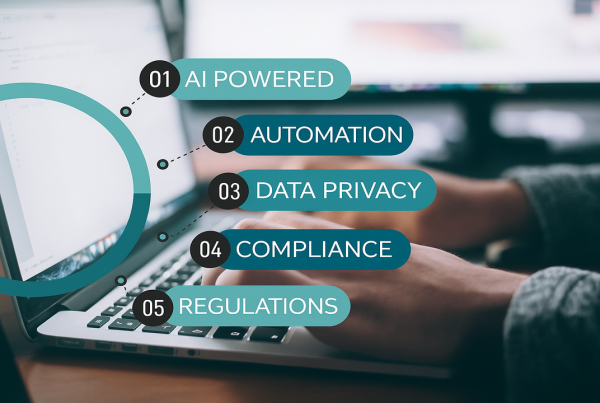As technology continues to evolve at an unprecedented pace, the rise of AI has become a transformative force across various industries. AI’s potential is vast, promising enhanced efficiency, innovation, and convenience. However, it also presents significant risks and challenges for organisations if they do not have the necessary risk strategies in place.
The Acceleration of AI Advancements
The advancements in AI have revolutionised the way we live and work. AI has proven its potential to transform every sector of our society. The progress in natural language processing, machine learning algorithms, and deep learning networks has exponentially accelerated AI’s capabilities and applications, presenting both opportunities and dangers.
The Risk Landscape of AI
While these advancements in AI bring immense benefits, they also pose various risks that demand immediate attention. Some of the major risks include:
- Bias and Fairness: AI algorithms are only as good as the data they are trained on. If the data they are trained on is biased, the AI system may accentuate and reinforce those biases, resulting in discriminatory or prejudiced outcomes.
- Privacy Concerns: The usage of vast amounts of data needed to fuel AI systems can often lead to significant privacy concerns. If handled improperly, sensitive data can be compromised, leading to breaches, identity theft, or unauthorised access.
- Security Vulnerabilities: AI systems are not invincible and are vulnerable to cyber-attacks. Bad actors are able to exploit weaknesses in AI algorithms and security breaches lead to manipulated outcomes or sensitive information being leaked.
- Autonomous Decision-making: As AI systems develop greater autonomy, the absence of human involvement in crucial decision-making processes can bring up concerns about ethics and accountability.
- Unemployment and Economic Disruption: AI’s growing popularity in the workforce could result in job displacement, thus affecting a range of industries and leading to economic disruption.
The Importance of a Risk Strategy
In light of these risks, having a robust risk strategy in place is essential. Such a strategy should include:
- Ethics and Transparency
When putting a risk strategy together for AI development and deployment, it’s crucial to prioritise ethical considerations and transparency. Transparent AI algorithms help build trust among users and stakeholders, which in turn promotes responsible usage and encourages acceptance. - Data Governance and Privacy Protection
Data governance is vital to safeguard user data and ensure compliance with privacy regulations. AI systems should be developed with privacy as the primary consideration, and data collection should be limited to what is required for the system’s intended purpose. A robust data protection strategy includes encryption, secure storage, and controlled access to sensitive information. - Security Measures
It is crucial for organisations to implement strict security measures to safeguard their AI systems from potential attacks. The risk strategy should include regular security audits, threat modelling, and vulnerability assessments to identify and address any weaknesses before they can be exploited. - Human-in-the-loop Approach – Is the future workforce equipped to survive?
AI automation has the potential to enhance efficiency, but it’s crucial to maintain a human-in-the-loop approach. This approach is necessary to ensure human oversight and intervention in pivotal decision-making processes. It promotes accountability and prevents AI from making decisions that could have severe consequences. To support this strategy it is critical that skills development programmes beginning in early learning, that support critical thinking, working independently, leadership skills, analytical and problem solving skills. Independent programmes may need to be considered, given the dire nature of poor quality of education that is currently in existence within South Africa. - Upskilling and Reskilling Workforce
It’s important for companies to invest in reskilling and upskilling their workforce. Organisations need to train employees to work alongside these technologies, adapt to evolving job roles, and maintain a learning mindset.
To ensure responsible and safe integration of AI, organisations must prioritise the implementation of comprehensive risk strategies. Our software rapidly detects vulnerabilities so that we can provide detailed advice on what needs to be done in order to mitigate these risks.
Get in touch to find out more about our risk assessment.





